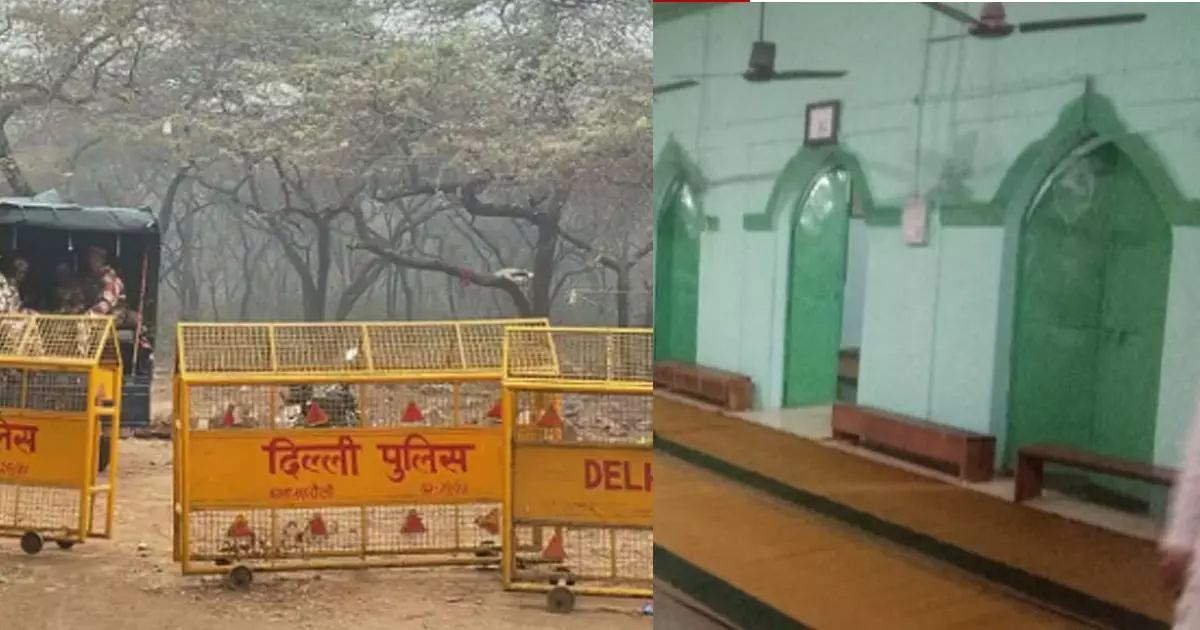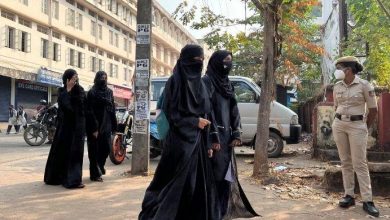600-year-old mosque razed in South Delhi’s Mehrauli locality without prior notice
 New Delhi: A 600-year-old mosque in the Mehrauli neighbourhood of South Delhi was demolished in an operation carried out by the Delhi Development Authority (DDA).
New Delhi: A 600-year-old mosque in the Mehrauli neighbourhood of South Delhi was demolished in an operation carried out by the Delhi Development Authority (DDA).
According to Kashmir Media Service, the mosque’s Imam, Zakir Hussain, said the demolition operation was surreptitiously carried out without any prior notice. Pieces of debris were meticulously removed to conceal the demolition from the public eye, he added.
The Imam claimed that DDA officials, accompanied by a significant police presence, not only demolished the mosque but forcefully confiscated phones, preventing any documentation of the incident..
This shocking event unfolded amidst a broader demolition drive by the DDA and the Forest Department in the Sanjay Van area. Temples, dargahs, and graveyards faced the bulldozer in the name of clearing illegal encroachments.
The mosque’s demolition starkly contradicts previous assurances given by the DDA to the Delhi High Court, pledging not to demolish any mosque, graveyard, or legally owned Waqf property in the Mehrauli Archaeological Park.
Citizens have taken to social media to decry what they perceive as an unconstitutional act, drawing parallels with other instances of selective demolitions targeting properties owned by Muslims. The incident has ignited concerns over the protection of religious freedom and cultural heritage.
People from both Hindu and Muslim communities are expressing their displeasure, emphasising the emotional and religious significance attached to the historic Masjid Akhonji.
The incident calls for a thorough and impartial investigation into the circumstances surrounding the mosque’s demolition. It raises pressing questions about the protection of religious structures in the region and the need for transparency and accountability in such sensitive matters.
The news continues to stun the public and the incident is expected to have lasting repercussions on the perception of religious freedom and heritage protection in the country. The situation calls for a collective reflection on the delicate balance between development initiatives and preservation of historical and cultural landmarks.







